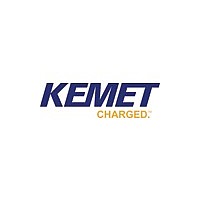c2225c105k5rac7800 Kemet, c2225c105k5rac7800 Datasheet

c2225c105k5rac7800
Manufacturer Part Number
c2225c105k5rac7800
Description
Manufacturer
Kemet
Datasheet
1.C2220C105K5RAC7800.pdf
(11 pages)
Specifications of c2225c105k5rac7800
Remarks
pb-free
Date_code
2009+
variety of physical sizes and configurations, including
leaded devices and surface mounted chips. Leaded
styles include molded and conformally coated parts
with axial and radial leads. However, the basic
capacitor element is similar for all styles. It is called a
chip and consists of formulated dielectric materials
which have been cast into thin layers, interspersed
with metal electrodes alternately exposed on opposite
a wide range of characteristics. The EIA standard for
ceramic dielectric capacitors (RS-198) divides ceramic
dielectrics into the following classes:
suitable for resonant circuit application or other appli-
cations where high Q and stability of capacitance char-
acteristics are required. Class I capacitors have
predictable temperature coefficients and are not
affected by voltage, frequency or time. They are made
from materials which are not ferro-electric, yielding
superior stability but low volumetric efficiency. Class I
capacitors are the most stable type available, but have
the lowest volumetric efficiency.
or coupling applications or frequency discriminating
circuits where Q and stability of capacitance char-
acteristics are not of a major importance. Class II
capacitors have temperature characteristics of ± 15%
or less. They are made from materials which are
ferro-electric, yielding higher volumetric efficiency but
less stability. Class II capacitors are affected by
temperature, voltage, frequency and time.
* 1 MHz and 1 vrms if capacitance
Dissipation Factor: Measured at following conditions:
Dielectric Strength: 2.5 times rated DC voltage.
Insulation Resistance (IR): At rated DC voltage,
Temperature Characteristics: Range, °C
Multilayer ceramic capacitors are available in a
Ceramic dielectric materials can be formulated with
Class I: Temperature compensating capacitors,
Class II: Stable capacitors, suitable for bypass
C0G — 1 kHz and 1 vrms if capacitance > 1000 pF
X7R — 1 kHz and 1 vrms*
Z5U — 1 kHz and 0.5 vrms
PARAMETER
KEMET Electronics Corporation, P.O. Box 5928, Greenville, S.C. 29606, (864) 963-6300
1 MHz and 1 vrms if capacitance
®
MULTILAYER CERAMIC CAPACITORS/AXIAL & RADIAL LEADED
100 pF on military product.
whichever of the two is smaller
Capacitance Change without
DC voltage
SPECIFIED ELECTRICAL LIMITS
TEMPERATURE CHARACTERISTICS
1000 pF
Table I
small physical volume. After firing, conductive
for by-pass coupling or other applications in which
dielectric losses, high insulation resistance and
stability of capacitance characteristics are of little or
no importance. Class III capacitors are similar to Class
II capacitors except for temperature characteristics,
which are greater than ± 15%. Class III capacitors
have the highest volumetric efficiency and poorest
edges of the laminated structure. The entire structure is
fired at high temperature to produce a monolithic
block which provides high capacitance values in a
terminations are applied to opposite ends of the chip to
make
Termination materials and methods vary depending on
the intended use.
stability of any type.
the three most popular temperature characteristics:
Specified electrical limits for these three temperature
characteristics are shown in Table 1.
Class III: General purpose capacitors, suitable
KEMET leaded ceramic capacitors are offered in
C0G: Class I, with a temperature coefficient of 0 ±
30 ppm per degree C over an operating
temperature range of - 55°C to + 125°C (Also
known as “NP0”).
X7R: Class II, with a maximum capacitance
change of ± 15% over an operating temperature
range of - 55°C to + 125°C.
Z5U: Class III, with a maximum capacitance
change of + 22% - 56% over an operating tem-
perature range of + 10°C to + 85°C.
0 ± 30 ppm/°C
1,000 M -µF
contact
or 100 G
-55 to 125
0.15%
C0G
TEMPERATURE CHARACTERISTICS
Pass Subsequent IR Test
with
1,000 M -µF
or 100 G
-55 to 125
the
±15%
2.5%
X7R
exposed
1,000 M -µF
+22%, -56%
+10 to 85
or 10 G
electrodes.
4.0%
Z5U











